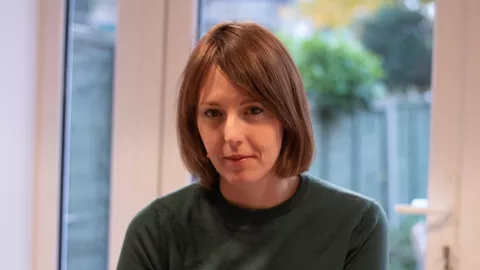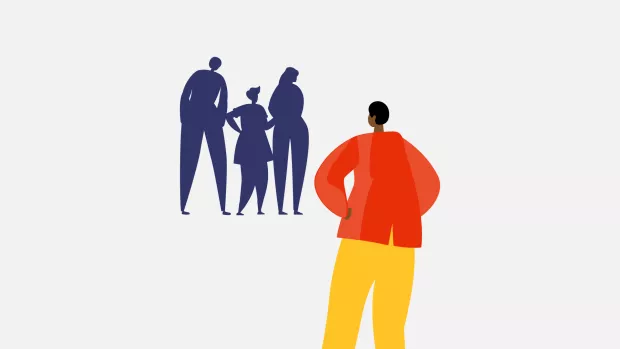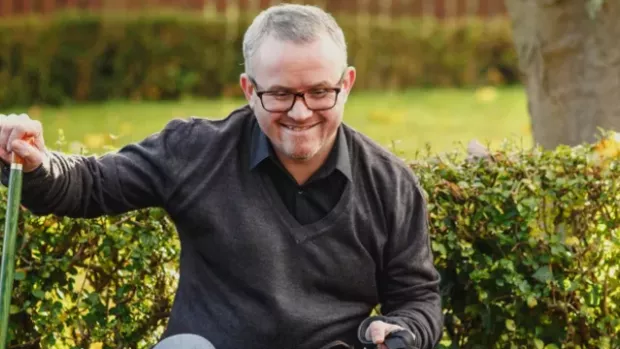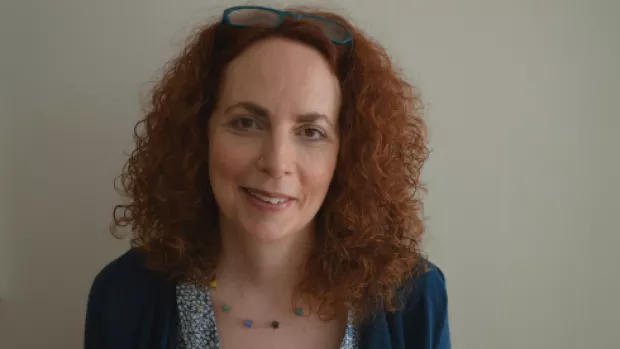
Telling my work colleagues I have MS
When I was coming to terms with my MS diagnosis, one of the most difficult stages for me was telling other people.
I kept my MS diagnosis private
In the beginning, I hardly told anyone about my diagnosis except on a strictly ‘need to know’ basis. I didn’t want to be treated differently or for people to feel sorry for me. Ultimately I wanted to pretend it wasn’t really happening.
I was most afraid of the reactions of people I worked with. I didn’t know what they knew about MS or what they would assume it meant for me.
At first, I only told my boss, and I thought I’d get away without telling anyone else. That was fine for a year or so. But then I found myself feeling resentful that I couldn’t explain why I yawned my way through meetings. Or why I sometimes had slurred speech in the afternoons, and had to write down every conversation so I didn’t forget the details.
Worrying about people’s reactions
I worried that colleagues would draw their own conclusions about the way I was acting. When I stumbled I worried they’d think I’d been drinking.
When I was visibly exhausted I worried they’d think I’d been out late the night before. And when I was forgetful or confused I worried they’d think I wasn’t paying attention or wasn’t intellectually up to doing my job.
I thought keeping my secret was safer than telling the truth.
It never feels natural to say “I have MS”
The words “I have MS” are so unwieldy in my mouth and it doesn’t matter how many times I say them, it never feels natural. I’m always hyper-aware of pairing my facial expression appropriately with the sentence. I try to make sure I deliver the news in a way that minimises negative reactions from the person I’m talking to.
Should I smile as if it’s as incidental as having had my hair cut - “but I’m FINE!”?
Should I allow myself a slight sadness in the eyes, to show how I’m bravely accepting my diagnosis - “but I’m staying strong for the children”?
Or should I allow myself a gentle ironic chuckle – “well, what can you do - these things are sent to try us!”
I’ve delivered the news in all of those ways and none of them make it any easier. The fact is you can’t control how people react. So I’ve found the best strategy is to stay as removed from their reaction as possible.
My colleagues were kind and understanding
But my worries were unfounded.
I learned a lot about the people I work with from the way they responded to my diagnosis. And I was pleasantly surprised with their kindness and understanding.
Telling my colleagues what I was going through took an immense weight off my shoulders. And with their support I was able to think about having a career again - something I thought I would have to give up on.
Being open about my MS has benefited me
Nowadays I work part-time, sometimes in the office, and sometimes from home. This means I can manage my fatigue and do my best at work. And I’m more focused which means I work better.
Being open about my MS at work has benefited me in so many ways. And it helps that employment laws exist to protect people with MS from discrimination.
Moreover, MS is part of me whether I like it or not. If I keep it hidden, I’m hiding part of myself. And that is a stressful thing to do.




